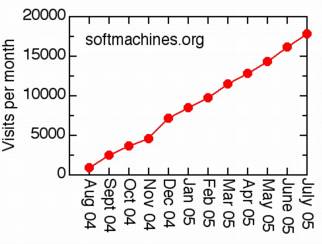What’s going to be the quickest way of achieving some kind of radical nanotechnology, in which sophisticated nanoscale machines carry out complex chemical tasks? Since nature has evolved sophisticated and effective nanomachines that are optimised for the nanoscale environment, an obvious approach is to take components from living systems and reassemble them to do the tasks you want. This is the approach of bionanotechnology. But we could take this logic further. Rather than rebuilding systems from individual biological components, we could take a complete organism, strip out the functions we don’t want, and patch in the genetic code for the components we need. This top-down approach to bionanotechnology is exactly what is being proposed by a new company, Synthetic Genomics Inc, founded in June by Craig Venter. Venter is, of course, the scientist behind the private sector venture to sequence the human genome. The initial focus will be on the use of these partly synthetic organisms to make alternative fuels such as hydrogen and ethanol.
The vehicle for these strange hybrids is likely to be the parasitic bacteria Mycoplasma genitalium, an unwelcome inhabitant of some people’s urinary tracts, which currently has the distinction of having the smallest known genome. This is contained on a mere 580,000 base pairs of DNA, coding for about 480 proteins and 40 RNA molecules. Venter’s group systematically knocked out genes from this organism in an attempt to find a so-called minimal genome. One can think of this as the simplest possible fully functioning life-form (of course, such an organism would be very restricted in the environment it can live in). In Venter’s 1999 paper in Science, Global transposon mutagenesis and a minimal mycoplasma genome, a further 100 proteins were eliminated without fatally compromising the organisms’ existence. Having stripped the organism down to a minimal level of complexity, the idea would be to reinsert synthetic genes coding for whatever machinery you require.
There are two questions to ask about this: will it work, and should it be done? It’s certainly a very bold commitment to a very reductionist view of life: in their words “using the genome as a bio-factory, a custom designed, modular cassette system will be developed so that the organism executes specific molecular functions”. As for the ethics of the enterprise, I’m sure even the most enthusiastic technophile would at least pause to think about the implications of attempting to re-engineer life on this scale. Indeed, Venter’s group commissioned their own bioethicists to think about the issues, and this ethical commentary accompanied their original Science article. This is just the beginning of a very big story.
